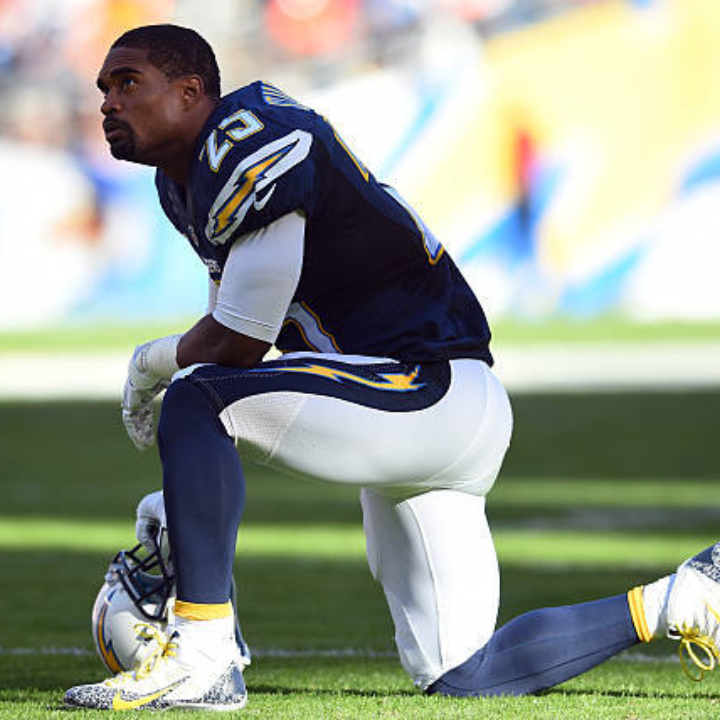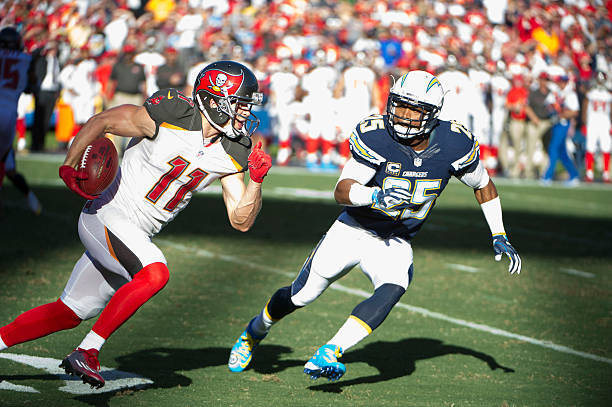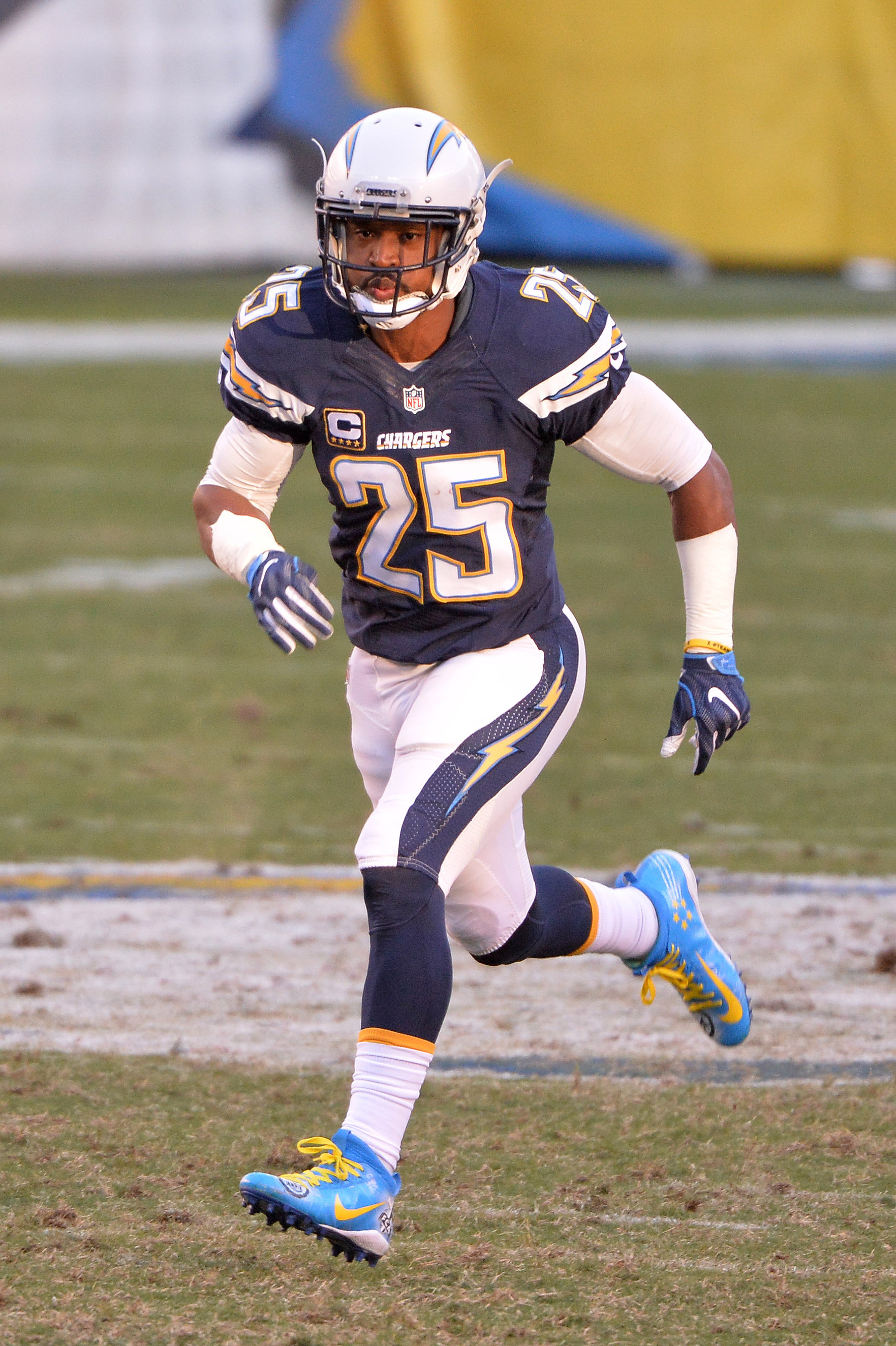
Catching Up with Former Player Rep: Darrell Stuckey
Darell Stuckey, former NFL Pro Bowl safety and University of Kansas football icon, has built a legacy rooted in leadership, service, and advocacy. His transition out of the league was marked by deep reflection and a focus on transferable skills, which he now channels into his role as Director of Football Relations at KU Athletics. There, he fosters community engagement, supports player development, and strengthens ties with alumni. We spoke with Darrell about his journey, the lessons learned through football, and his ongoing mission to uplift the next generation.

What inspired you to become a Player Rep?
My grandmother raised me to always create value. It made me realize that if I was willing to do it, willing to put in the work, and had the competence and the knowledge to do it, why wouldn't I speak up for the people that I represent? But I knew I had to earn their trust. I thought there was no greater honor than to be a captain of a team, which turned into a rep for a team. As a rep, you know what’s going on, you’re able to help your teammates in ways they can’t imagine. You're able to help, and help them interpret things that they see or get information they get indirectly. Being able to do that at the highest level is something I took seriously. So I was able to impact the next generation of players we see today.
What advice do you have for players transitioning out of the league?
You're not alone. When you transition out the league, you're not alone. You're not the only one dealing with that same issue, no matter how prepared a player thinks they may be. You have to rewire yourself because all that you built up being an athlete is almost like blowing up a balloon. You put light force in this over and over again to blow it up. But everybody knows the more air you put in it, the higher the probability there is to pop. So you're putting your life force into this game, and eventually everybody knows it's going to pop. But when you're in it, you think you're the outlier. You think you're the exception. Oh, it's never going to pop for me. I'm going to know when it's coming. I'm going to be ready. But the reality is, when it does pop, we always take it as we lose something. As if the balloon just popped and it just messed up the decorations. The balloon popped because it was meant to pop, because you put so much into it. You just have to figure out what part of this can serve me. Me being able to walk into a room full of alphas and create value that still can serve me as a professional in something else. Knowing how to lead others without being selfish, that's going to serve me in the next opportunity. Being able to take constructive criticism, being able to improve and perform under pressure, being circumstantial based in my work ethic, that can all transfer. But I have to take myself out of the limelight of needing people to know it.

What are you doing now post-retirement?
I am the Director of Football Relations here at the University of Kansas Athletics. I basically steward, cultivate, and keep a lot of our external relationships that impact our internal experience for coaches and players. We’ve averaged over 500 hours of community service the last three years for our players, separate from NIL, just in the summer months. As well, I assist our player development team with professional and leadership development along with our former player engagement too. This means increasing engagement with our former players and getting them involved in a way in which may not always be monetary, but in a way where these players feel supported.
Why do you think more players should be involved or be active with the NFLPA?
I think it's another opportunity for you to develop your skills and to find your voice. I think it also allows you to have a glimpse into how the administrative side of sports work. I think it puts a lot of things in perspective. Because of my experience as a Rep, I was able to literally walk into the office and sit down with Tom Telesco, our GM at the time, and discuss my exit because I understood the rules and understood the steps and the process of it. I knew my knee wasn't going to be ready. We have to take ownership over our environment if we want it to be conducive for us to thrive. That doesn't mean you have to dominate it. If you walk in a room full of alphas, you have to create value first to gain respect, and then after you gain respect, you have opportunities to express your ability to lead.

What’s one piece of advice you wish you got when you arrived in the NFL?
It’s hard to get in, harder to stay in. And hard once you get out. It’s rare. We don't understand that and we take it for granted. We look at it from a football standpoint like oh, I'm one of the best. Oh, I'm one of the best to ever do it or whatever. But it's such a rare space to be in that there's few that can relate to it. That level of detail and level of competition, you won't find it anywhere else. It's so black and white. Either you did it or you didn't. Anything that's questionable is up for review and given a definitive answer. It was the playbook that was the equalizer. In that level of competition, you partner with your coaches. It's a partnership. It's a collaboration. And if I did something wrong in my position, my coach said, "What were you thinking?" And I said "Coach, that's what was in the playbook." And if he saw what I said was correct, that was the end of the conversation. "Oh, that's on me then. Let's get that corrected." There was this equalizer of trust and of respect, and there's very few places in our society you find that.
What does the NFLPA Fraternity mean to you?
Protecting what was gained and build a better future. It's about honor. It's about understanding what you have, what was sacrificed for you, and maximizing it to be better for the next generation. You have to understand what came before you and have the foresight, to amplify what's going forward or get the hell out the way.